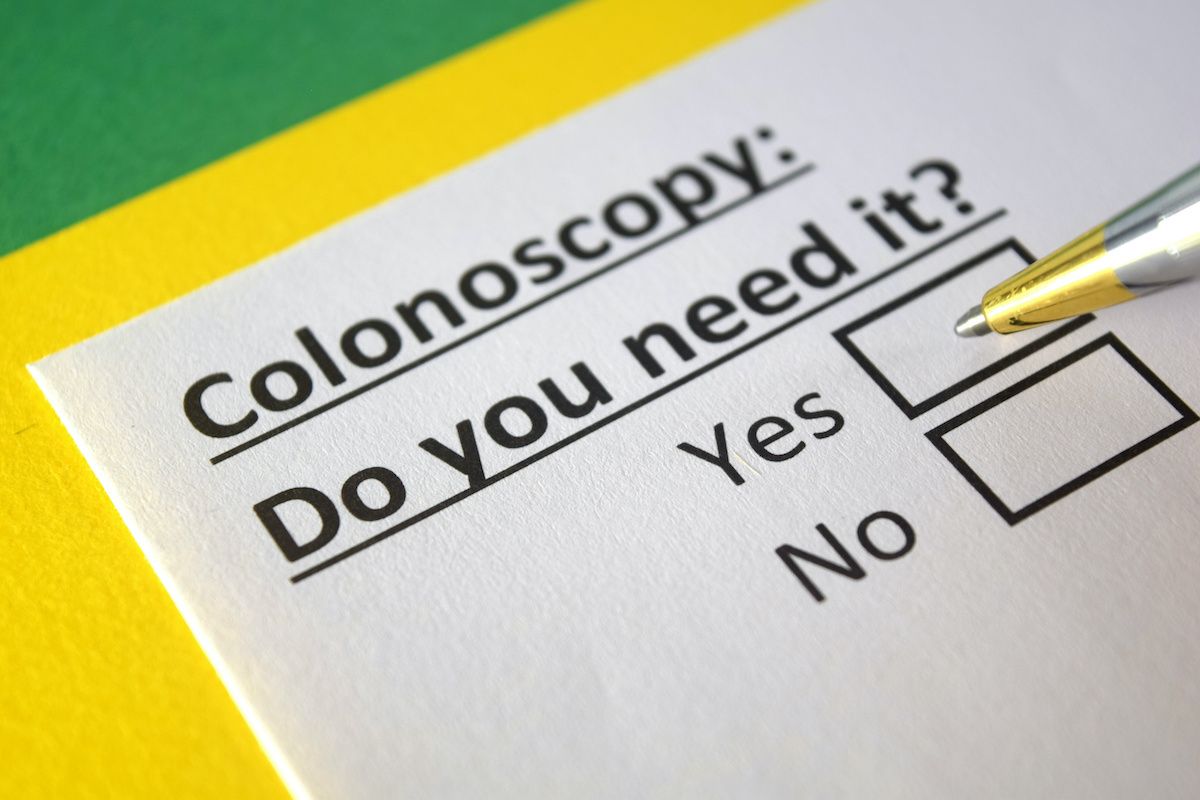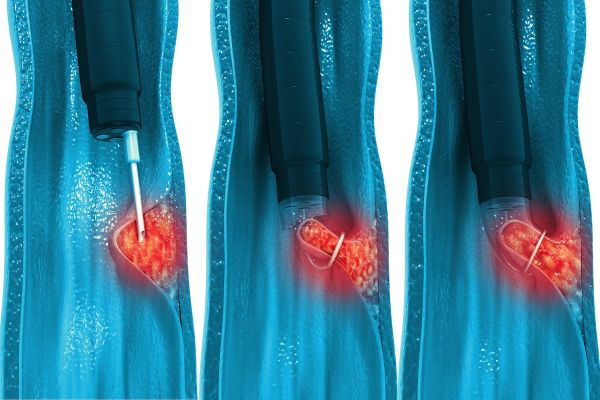Home, stool-based tests can be part of a screening program — but should never replace colonoscopy, the ‘gold standard’ of colorectal cancer prevention.
Colorectal cancer is one of the most treatable forms of cancer. “The unique thing about colorectal cancer is that it is one of the few preventable cancers,” says Anthony Dakwar, MD, a colorectal surgeon at Roswell Park Comprehensive Cancer Center. That’s why colorectal cancer screening is vitally important. Timely screenings look for small growths, called polyps, in the lining of the colon and rectum. “If you get routine screenings, we can remove precancerous polyps. That actually prevents the development of cancers,” Dr. Dakwar says. “That’s the whole purpose of screening.”
There are several ways to screen for colorectal cancer — but only one is considered “the gold standard”— colonoscopy.
Home stool-based tests are better than no test
Home stool tests have pros and cons. The test can be done in the privacy of your own bathroom, and you don’t have to go through the colon cleansing prep like you do with a colonoscopy. Home stool tests include:
- Fecal immunochemical test (FIT)
- Guaiac-based fecal occult blood test (gFOBT)
- Stool DNA test. This test looks for abnormal DNA from cancer or polyp cells, along with occult blood
But, by testing the stool, you’re looking for hidden (occult) blood which may or may not occur from a precancerous polyp. “The good thing about them is they are very cheap, easy to use and noninvasive,” Dr. Dakwar says. “However, there are significant false-negative rates.” Stool DNA tests are better and can detect colorectal cancer about 80-90% of the time, but their sensitivity for finding advanced precancerous lesions is only about 25 to 50%. Colonoscopy is over 95% successful, he says. “That’s a significant difference in the ability to find something that is actually there.”
If a home test comes back positive, you should contact your physician immediately to coordinate appropriate follow-up diagnostic testing — which will likely include a colonoscopy. Dr. Dakwar says he has seen many patients with “significant” colorectal cancer after getting negative home tests for several years. A recent study confirms the importance of follow-up screening. Researchers found that people who had a positive FIT result but did not have a follow-up colonoscopy were twice as likely to die as those who did.
Colonoscopy is still best
Home stool tests can be helpful for patients who do not have easy access to colonoscopy. Dr. Dakwar generally tells people to feel free to use home tests in consultation with their primary care physician. There are no clear guidelines on when or how often to use these tests, he says. “Because of the false-negative rates, I say approximately every three to five years if you are not having a regular colonoscopy. If you see changes in your bowel habits, and have no access to colonoscopy, you can do this as an ancillary test. However, I still recommend screening colonoscopy, per the general guidelines.
“I cannot stress enough that colonoscopy is the gold standard,” Dr. Dakwar says. “Nothing replaces a colonoscopy.” However, there are other screening methods as well. “They can provide ancillary information to mitigate risks,” he says.
Know Your Risk
Roswell Park recommends that everyone at average risk begin regular colorectal cancer screening at age 45 — earlier if you have certain risk factors or family history.
Who needs colorectal cancer screening?
In general, everyone is at risk for developing colorectal cancer, Dr. Dakwar says. Most people should begin regular colorectal cancer screening at age 45, five years sooner than the previous recommendation of age 50, because colorectal cancer among younger adults is on the rise. You should talk to your doctor about beginning screening younger than age 45, if you face a higher risk for colorectal cancer due to one of the following:
- African American ethnicity
- Inflammatory bowel disease, such as Crohn’s disease or ulcerative colitis
- A family history of colorectal cancer
- A personal history of colorectal polyps
- A personal history of breast, ovarian or uterine cancer
- A known genetic condition associated with colorectal cancer
But you should talk to your doctor about colorectal cancer screening at any age if you are experiencing symptoms, such as:
- A change in bowel habits
- Blood in or on the stool
- Diarrhea, constipation or feeling that the bowel does not fully empty
- Persistent abdominal pain, aches or cramps
- Unexplained weight loss
“Those patients should be screened as soon as possible,” Dr. Dakwar says. Colorectal cancer is very slow to develop, so, in general, patients without symptoms need to be screened only every 10 years. That can become more frequent, of course, depending on your case history. “If multiple polyps — more than three — are found, your gastroenterologist may recommend screening more often, perhaps every three to five years,” he says. “If we keep finding things, then we may need more frequent surveillance.”
If any test reveals a positive result, you should seek testing and treatment at a comprehensive cancer center like Roswell Park. “We are indeed comprehensive,” he says. “That means every patient gets personalized, customized care that is reviewed by a multidisciplinary team of surgeons, medical oncologists, radiologists, pathologists and others. The team devises the most customized and definitive care plan for each patient.”




